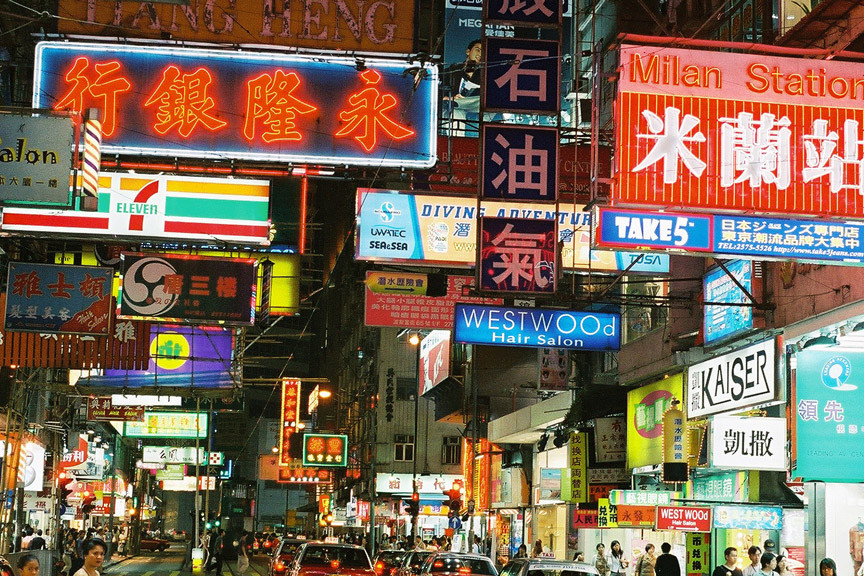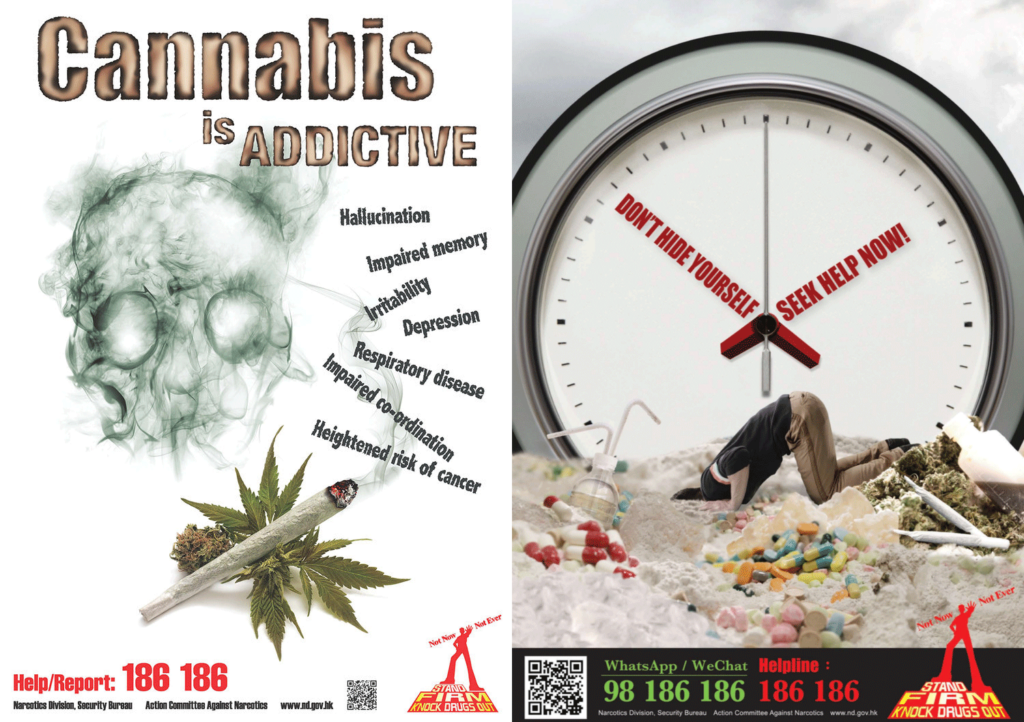Destigmatizing Marijuana and Psychedelics in Hong Kong
Through social media, student exchange, and American pop culture, perceptions of marijuana & psychedelics are slowly changing in Hong Kong.

Psymposia is a 501(c)(3) nonprofit research and media organization that offers critical perspectives on drugs, politics, and culture. We rely on contributions from our readers and listeners. Your support is vital to sustaining Psymposia.
Support Psymposia’s independent journalism on Patreon and help us drive the Mystery Machine! We’re a bunch of meddling kids who are unmasking the latest shenanigans on the psychedelics beat.
Hong Kong’s fate was forever changed once the British Empire seized the island and surrounding lands after the Opium Wars in the mid 1800’s.
As the conflict’s name implies, the Opium Wars were largely fought over trade, money, and imperialism, and involved the British smuggling in opium to the Chinese public. Since then, the Chinese public’s perception of drugs has been completely negative, blaming societal and domestic problems on drugs without any further critical thought.
Hong Kong has been no different; children are taught that all drugs are equally addictive and harmful to their bodies and to society, and if anyone were ever caught with drugs, they would face serious fines and consequences. Worst of all, they would bring shame to their families.
As it remains, Hong Kong has one of the most stringent penalties in the world for marijuana possession. If someone is caught with marijuana or other drugs, they can face up to HKD $1,000,000 (~ USD $129,000) in fines and up to 7 years of imprisonment. Of course, the maximum penalty is almost never enforced. The Hong Kong Police are more interested in catching drug traffickers and smugglers than individual users.
Nonetheless, you never know how the police will react if they find marijuana on you. Search-and-frisk is very common in Hong Kong, so carrying marijuana does involve some amount of risk. The Hong Kong Police generally profile young men that fit the stereotypical image of Triads and other gangs, as they will have a higher chance of being randomly searched.
Medicinal uses of marijuana aren’t recognized by the Hong Kong government, and it’s viewed as a “highly dangerous” and “highly addictive” substance. Occasionally, you may see government-sponsored ads detailing how dangerous marijuana is. The propaganda against marijuana today is so strong that you can draw an obvious conclusion – marijuana is on the rise in Hong Kong, and the government is doing everything they can to put an end to it.
While smoking weed might not be as common and casual as it is in the United States, it is definitely catching up in Hong Kong. And depending on where you are, you can smell the glorious burn.
For various reasons, marijuana has gained more popularity in the last 5 years here than ever before, and it’s quickly becoming part of youth culture.The first reason seems to be the liberalization and legalization efforts of marijuana in the United States. Through the internet and social media, people can instantly see what’s happening in different parts of the world. Now that they are starting to see some states actually legalize marijuana, the people of Hong Kong are asking more critical questions and doing their own research to find out the truth. More critical thinking leads to less blind following.

American pop culture and movies such as Ted, Trainwreck, Neighbors, and many more are coming to theaters in Hong Kong and promoting marijuana use. The Hong Kong public is starting to see that marijuana is not the harmful drug the government has portrayed it as. Instead, the people are waking up to the fact that not only is marijuana not harmful, or related to gangs and crime, but carries many benefits. The negative stigma of marijuana is slowly starting to fade away as more and more pop culture from the U.S. portrays marijuana as just another accepted substance like caffeine, alcohol, or other medicines.
Many students in Hong Kong often study abroad in universities overseas, and many end up studying in California and the west coast of the United States. Living and studying on the west coast comes with inevitable exposure to marijuana and stoner culture. With so much mainstream exposure to marijuana in movies, music, and social circles, views and perceptions on marijuana are slowly changing—whether or not they actually use it during their stay. When they come back to Hong Kong their views can be changed, and may no longer be brainwashed by the propaganda machine. Students also learn about the War On Drugs and the preposterous reasons these drugs are illegal in the first place, a topic they won’t have much exposure to in Hong Kong.
I’ve smoked my fair share of marijuana in Hong Kong. While the weed is nowhere near as high quality as the weed in the United States, it’s safe to say it still gets the job done.Buying weed is still very sketchy and reminds me of buying weed in the U.S. back in the days when you would hop in a car, do the handover, and hop out. Smoking weed in public is generally a no-no unless you are somewhere by yourself, which is basically impossible in metropolitan Hong Kong. Home use is far more common as I can sometimes smell weed smoke from certain apartment buildings as I walk down the streets.
When I tell my “normal” friends I smoke marijuana, I no longer get looks that say “drug addict”, or “low life”, but instead they show interest in trying it. I have also noticed more smoke shops opening up, selling bongs, rolling papers, pipes, and other marijuana-related supplies as the public perception slowly shifts.
Psychedelics are another issue entirely and they are hardly ever talked about in Hong Kong because of the lack of exposure to them. As marijuana goes mainstream in the U.S., the rest of the world follows. However, in the absence of the mainstreaming of psychedelics in the U.S., substances like psilocybin, LSD, ayahuasca, and peyote will definitely remain very underground in Hong Kong for the time-being.
Though psychedelics remain highly illegal here (and mostly everywhere), this is one of the many cities in the world that needs them the most. Hong Kong faces ongoing problems such as high population density, air pollution, small living quarters, an unstable political environment, and overall high rates of stress. I believe psychedelics are sorely needed and can aid many people in Hong Kong with their psychological problems. With marijuana remaining an illegal substance, psychedelics will have a long way to go before they are legalized, if ever.
Perhaps not all is grim for the future of psychedelics here. Recently, I have seen more and more interest from the people of Hong Kong in traveling to the Amazon jungle in Peru for ayahuasca retreats. Meditation centers are opening up in trendier parts of the city, along with independent yoga studios charging reasonable prices. Float centers have also made their way into the city, offering a place of peace and introspective reflection for hours at a time. With transformative tools like these entering the city, psychedelics may soon follow.
The conversations of marijuana legalization in the US, and the increasing conversations about psychedelics around the world need to be happening in Hong Kong as well. It is up to every single one of us, no matter where we live, to change public perception of marijuana and psychedelics, and it starts today. No matter who we are, or where we live, we can all make a difference.
Hey! Before you go… Psymposia is a 501(c)(3) non-profit media organization that offers critical perspectives on drugs, politics, and culture. We strive to ask challenging questions, and we’re committed to independent reporting, critical analysis, and holding those who wield power accountable.
Our perspectives are informed by critical analysis of the systemic crises of capitalism that have directly contributed to the unmitigated growth of addiction, depression, suicide, and the unraveling of our social relations. The same economic elite and powerful corporate interests who have profited from causing these problems are now proposing “solutions”—solutions which both line their pockets and mask the necessity of structural change.
In order for us to keep unpacking these issues and informing our audience, we need your continuing support. You can sustain Psymposia by becoming a supporter for as little as $2 a month.





